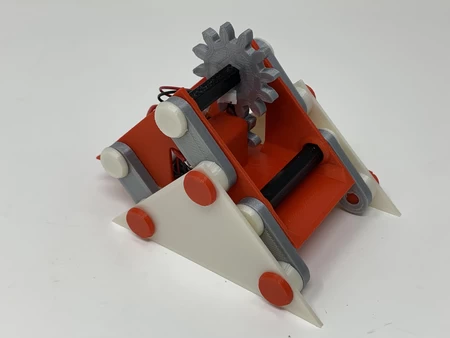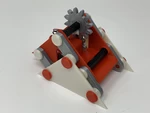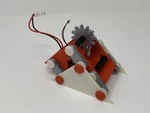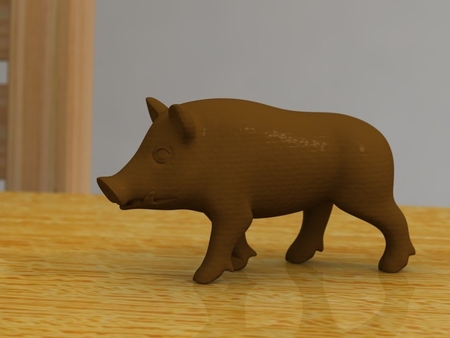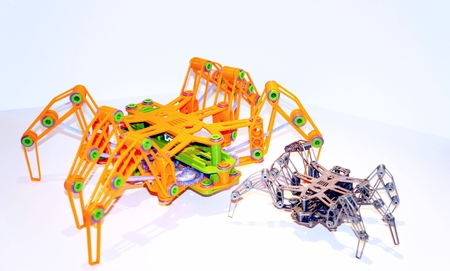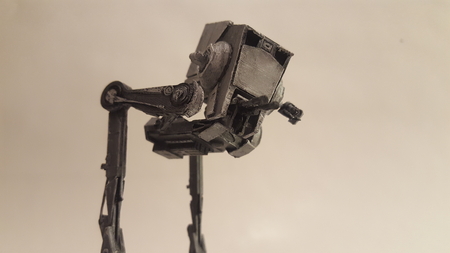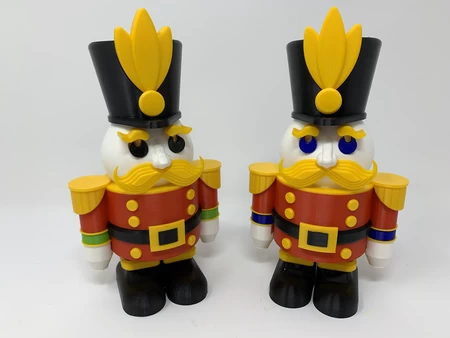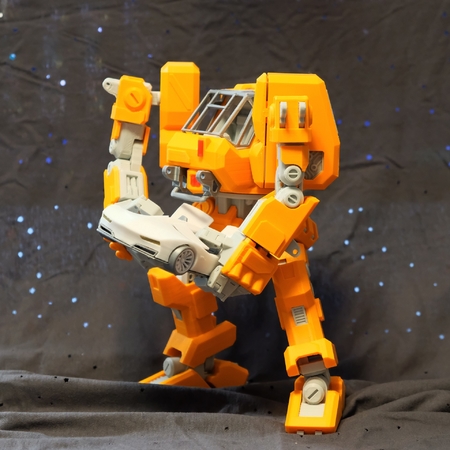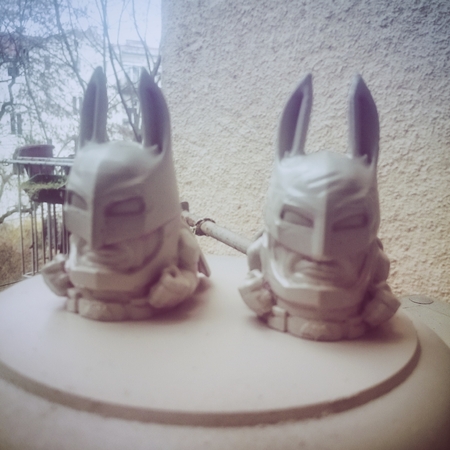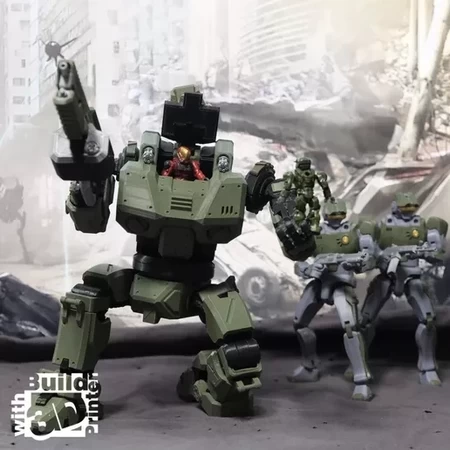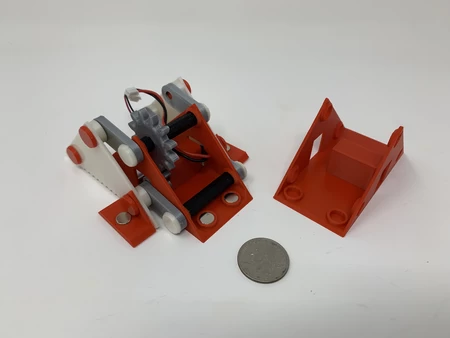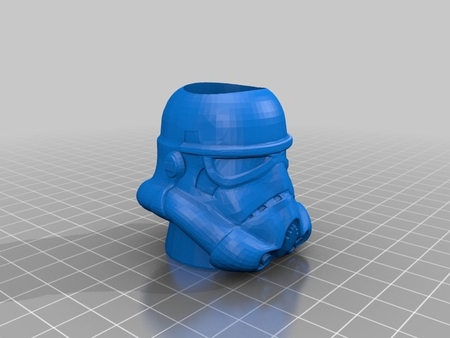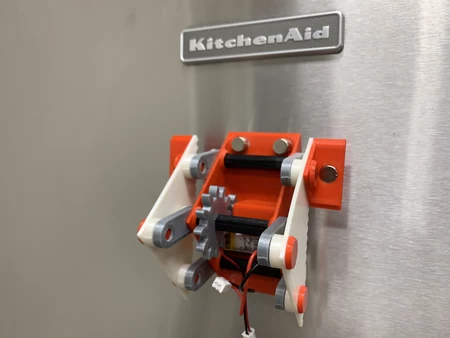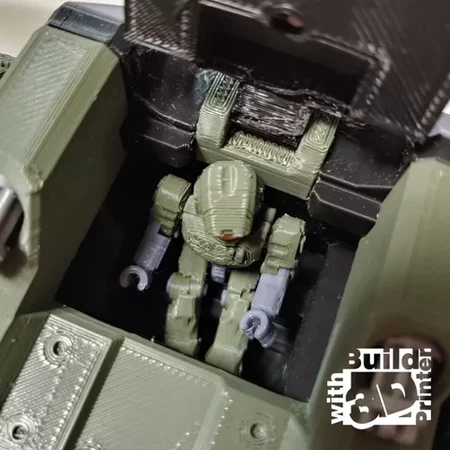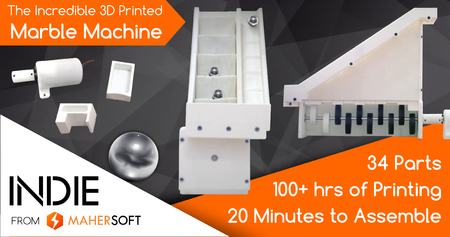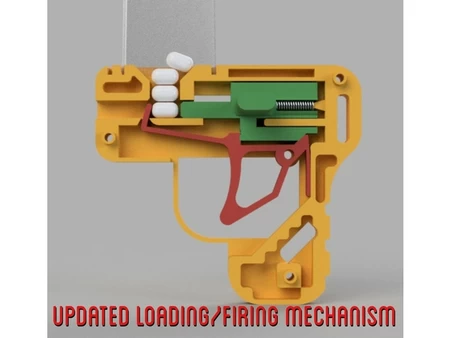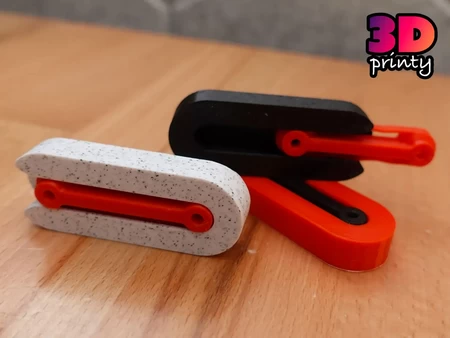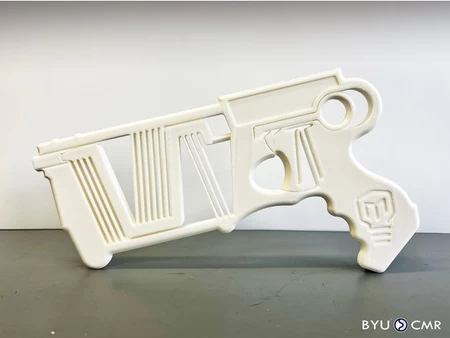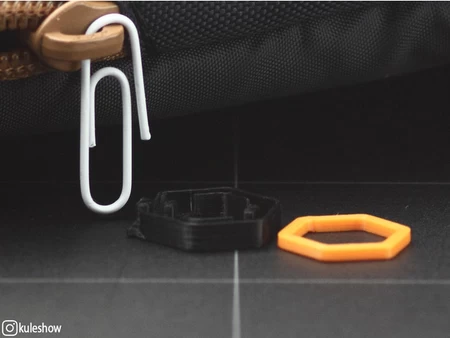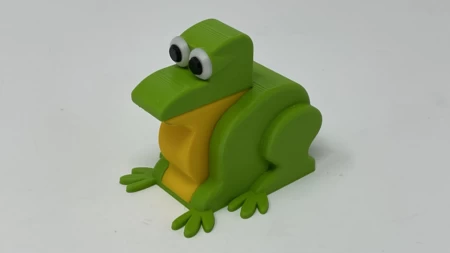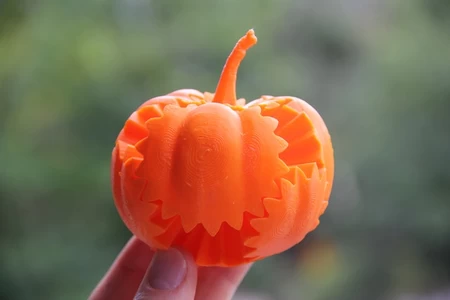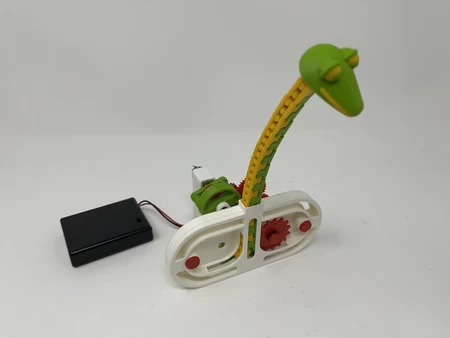A 3d printed simple "walking" mechanism 3D for print
2349 Views 2 Likes 0 Downloads Download the piece here from 3dforprint
https://youtu.be/q9p56CIYZ_k
I truly enjoy mechanisms, thus when a recent YouTube video appeared in my YouTube suggested... video feed of a CAD animation of a simple walking mechanism designed by thang010146:
https://youtu.be/1ht3nz4YgGY
I just had to try to recreate his mechanism for 3D printing.
thang01014's mechanism was designed to be powered by torsion springs or rubber bands, but I decided to design a motorized version. After a long afternoon of design, 3D printing and assembly, "A Simple 3D Printed "Walking" Mechanism." was the result. And as indicated in his video, the mechanism indeed powers over "rough" terrain with ease.
My implementation of his design consists of eight unique 3D printed parts (twenty six total 3D printed parts as there are numerous duplicates), a motor, battery and battery connector.
As usual I probably forgot a file or two or who knows what else, so if you have any questions, please do not hesitate to ask as I do make plenty of mistakes.
Designed using Autodesk Fusion 360, sliced using Cura 4.6.1, and 3D printed in PLA on an Ultimaker 2+ Extended, an Ultimaker 3 Extended and an Ultimaker S5.
I acquired the following parts:
• One 3.7vdc 100ma Lithium Battery (https://www.adafruit.com/product/1570).
• One JST PH 2-Pin Cable... (https://www.adafruit.com/product/3814).
• One N20 6VDC 150RPM gear motor (on line).
I 3D printed the following parts at .15mm layer height, 20% infill:
• Six "Arm.stl".
• Six "Axle, Side.stl".
• Three "Axle.stl".
• One "Base.stl".
• Six "Bolt, Axle.stl".
• One "Gear, Axle.stl".
• One "Gear, Motor.stl".
• Two "Side.stl".
Prior to assembly, test fit and trim, file, drill, sand, etc. all parts as necessary for smooth movement of moving surfaces, and tight fit for non moving surfaces. Depending on you printer, your printer settings and the colors you chose, more or less trimming, filing, drilling and/or sanding may be required. Carefully file all edges that contacted the build plate to make absolutely certain that all build plate "ooze" is removed and that all edges are smooth. I used small jewelers files and plenty of patience to perform this step.
The mechanism also uses threaded assembly, so I used a tap and die set (6mm by 1) for thread cleaning.
Assembly.
For assembly, I performed the following steps:
• Positioned "Gear, Motor.stl" into "Base.stl", then pressed the motor into the base and gear.
• Soldered the JST connector to the motor.
• Pressed "Gear, Axle.stl" onto one of "Axle.stl".
• Positioned the axle assembly in the base assembly, then secured in place with two "Arm.stl" and two "Bolt, Axle.stl".
• Positioned the second axle in the base assembly then secured in place with two "Arm.stl" and two "Bolt.stl".
• Positioned the third axle in the base assembly then secured in place with two "Arm.stl" and two "Bolt.stl".
• Attached one "Side.stl" to the base assembly arms on one side using three "Axle, Side.stl".
• Attached the remaining side to the base assembly arms on the remaining side using three "Axle, Side.stl".
• Secured the battery to the base assembly using double sided tape.
• After assembly, I simply plugged the JST connector onto the battery connect, and off it went!
And that is how I 3D printed and assembled "A Simple 3D Printed "Walking" Mechanism".
I hope you enjoyed it!
Designer
Greg Zumwalt3d model description
A simple walking mechanism.https://youtu.be/q9p56CIYZ_k
I truly enjoy mechanisms, thus when a recent YouTube video appeared in my YouTube suggested... video feed of a CAD animation of a simple walking mechanism designed by thang010146:
https://youtu.be/1ht3nz4YgGY
I just had to try to recreate his mechanism for 3D printing.
thang01014's mechanism was designed to be powered by torsion springs or rubber bands, but I decided to design a motorized version. After a long afternoon of design, 3D printing and assembly, "A Simple 3D Printed "Walking" Mechanism." was the result. And as indicated in his video, the mechanism indeed powers over "rough" terrain with ease.
My implementation of his design consists of eight unique 3D printed parts (twenty six total 3D printed parts as there are numerous duplicates), a motor, battery and battery connector.
As usual I probably forgot a file or two or who knows what else, so if you have any questions, please do not hesitate to ask as I do make plenty of mistakes.
Designed using Autodesk Fusion 360, sliced using Cura 4.6.1, and 3D printed in PLA on an Ultimaker 2+ Extended, an Ultimaker 3 Extended and an Ultimaker S5.
3d model print parameters
Parts.I acquired the following parts:
• One 3.7vdc 100ma Lithium Battery (https://www.adafruit.com/product/1570).
• One JST PH 2-Pin Cable... (https://www.adafruit.com/product/3814).
• One N20 6VDC 150RPM gear motor (on line).
I 3D printed the following parts at .15mm layer height, 20% infill:
• Six "Arm.stl".
• Six "Axle, Side.stl".
• Three "Axle.stl".
• One "Base.stl".
• Six "Bolt, Axle.stl".
• One "Gear, Axle.stl".
• One "Gear, Motor.stl".
• Two "Side.stl".
Prior to assembly, test fit and trim, file, drill, sand, etc. all parts as necessary for smooth movement of moving surfaces, and tight fit for non moving surfaces. Depending on you printer, your printer settings and the colors you chose, more or less trimming, filing, drilling and/or sanding may be required. Carefully file all edges that contacted the build plate to make absolutely certain that all build plate "ooze" is removed and that all edges are smooth. I used small jewelers files and plenty of patience to perform this step.
The mechanism also uses threaded assembly, so I used a tap and die set (6mm by 1) for thread cleaning.
Assembly.
For assembly, I performed the following steps:
• Positioned "Gear, Motor.stl" into "Base.stl", then pressed the motor into the base and gear.
• Soldered the JST connector to the motor.
• Pressed "Gear, Axle.stl" onto one of "Axle.stl".
• Positioned the axle assembly in the base assembly, then secured in place with two "Arm.stl" and two "Bolt, Axle.stl".
• Positioned the second axle in the base assembly then secured in place with two "Arm.stl" and two "Bolt.stl".
• Positioned the third axle in the base assembly then secured in place with two "Arm.stl" and two "Bolt.stl".
• Attached one "Side.stl" to the base assembly arms on one side using three "Axle, Side.stl".
• Attached the remaining side to the base assembly arms on the remaining side using three "Axle, Side.stl".
• Secured the battery to the base assembly using double sided tape.
• After assembly, I simply plugged the JST connector onto the battery connect, and off it went!
And that is how I 3D printed and assembled "A Simple 3D Printed "Walking" Mechanism".
I hope you enjoyed it!
